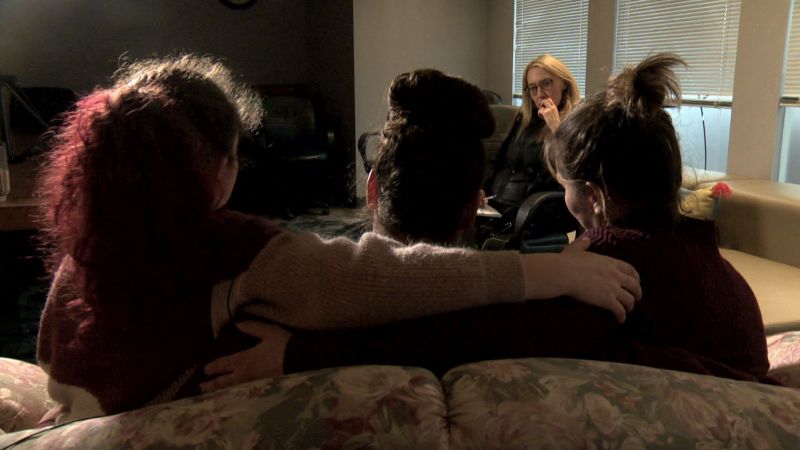By Sam Thompson Global News Posted December 17, 2020

When Winnipeg fashion mogul Peter Nygard was arrested Monday, among the charges against him were sex trafficking and related crimes.
The U.S. Department of Justice alleges Nygard and unnamed co-conspirators used company money to traffic women and girls from the U.S. and Canada for at least 25 years. The disgraced designer is currently facing extradition to the U.S. to face charges there.
Although Nygard’s case is shining a light on the reality of sex trafficking right here in Winnipeg, victims say they hope the extra attention will raise awareness of the issue and force Manitobans to acknowledge that it’s happening in their own backyard.
“Nicole,” who grew up in rural Manitoba, told 680 CJOB she moved to Winnipeg for school in her late teens, and met her trafficker while working as a cocktail waitress in a Winnipeg strip club.
“It was a job that I took only because I had a friend that was kind of pushing for me to get involved there,” she said.
“I really wasn’t at a great place in life, so I was very vulnerable. She was kind of the only friend I had, and I found out later that she was involved with my trafficker.
“My case would be considered textbook according to the standards of grooming that a lot of traffickers put their victims through.”
Nicole said traffickers often have an ‘innate ability’ to pick out potential victims who have insecurity issues or may have suffered past abuse, which was true in her case.
After meeting her trafficker through her friend, Nicole said she was lured in through a relationship with the man, who gave her the love, affection and attention she craved — until the situation took a drastic turn.
“It wasn’t too long after our dating relationship became more solidified that he started changing the way he spoke to me,” she said.
“He started treating me differently, and it escalated to the point where it was full-blown mental and emotional abuse — where you don’t think you have much of an identity outside of this person anymore because you just believe everything they tell you about yourself.”
Nicole said the gradual nature of the grooming was a ‘slow descent’ into removing all of her self esteem, leaving her an emotionally broken, empty person.
When the man she believed was her boyfriend started trafficking her to others for sexual purposes, she didn’t feel it was something she could refuse.
“You feel like you have no other choice, like your own will has been removed from you to the point that you’ve learned to listen no matter how badly you don’t want to do the things you’re told to do.”
Alaya, a transgender woman from a rural Manitoba First Nation, told 680 CJOB she had a similarly harrowing experience — one that began when she was only 12 years old.
She said she was put into state care at that age, and given the option of staying in her home community — which she didn’t want — or to come to Winnipeg.
When she arrived in the city on a Greyhound bus, Alaya said she was spotted by an abuser almost immediately.
“I was put onto a Greyhound bus with no one on the other end to receive me… and then within minutes of getting off that Greyhound bus, I was victim to a perpetrator that obviously knew what he was out doing.
“He gave me the affection that I was seeking or wanting at that time and validated me as a human,” she said.
“I was gullible and naive and coming from a First Nations community, and I went with him. He told me where to go, he picked me up … I performed sex acts on him and he disposed of me like a piece of garbage after he was done abusing me.”
Alaya said that experience led her to drugs — an addiction to crack cocaine before she was in her teens — and the sex industry.
She said she was victimized repeatedly and trafficked across the country.
“It was like monkey-in-the-middle, and people were fighting over me and buying me… and I had to keep performing sex acts just to survive and live at that point in my life, not understanding the consequences.”
In both Nicole’s and Alaya’s cases, their traffickers have never been brought to justice, and Alaya said that fear and a lack of resources is why many victims don’t come forward.
“A lot of us barely come forward because there’s really no support for when survivors come forward and want to pursue charges,” she said.
“The safety net is very scarce, so we need to fix that narrative in finding a better solution based off the values and principles of survivors.”
© 2020 Global News, a division of Corus Entertainment Inc.
